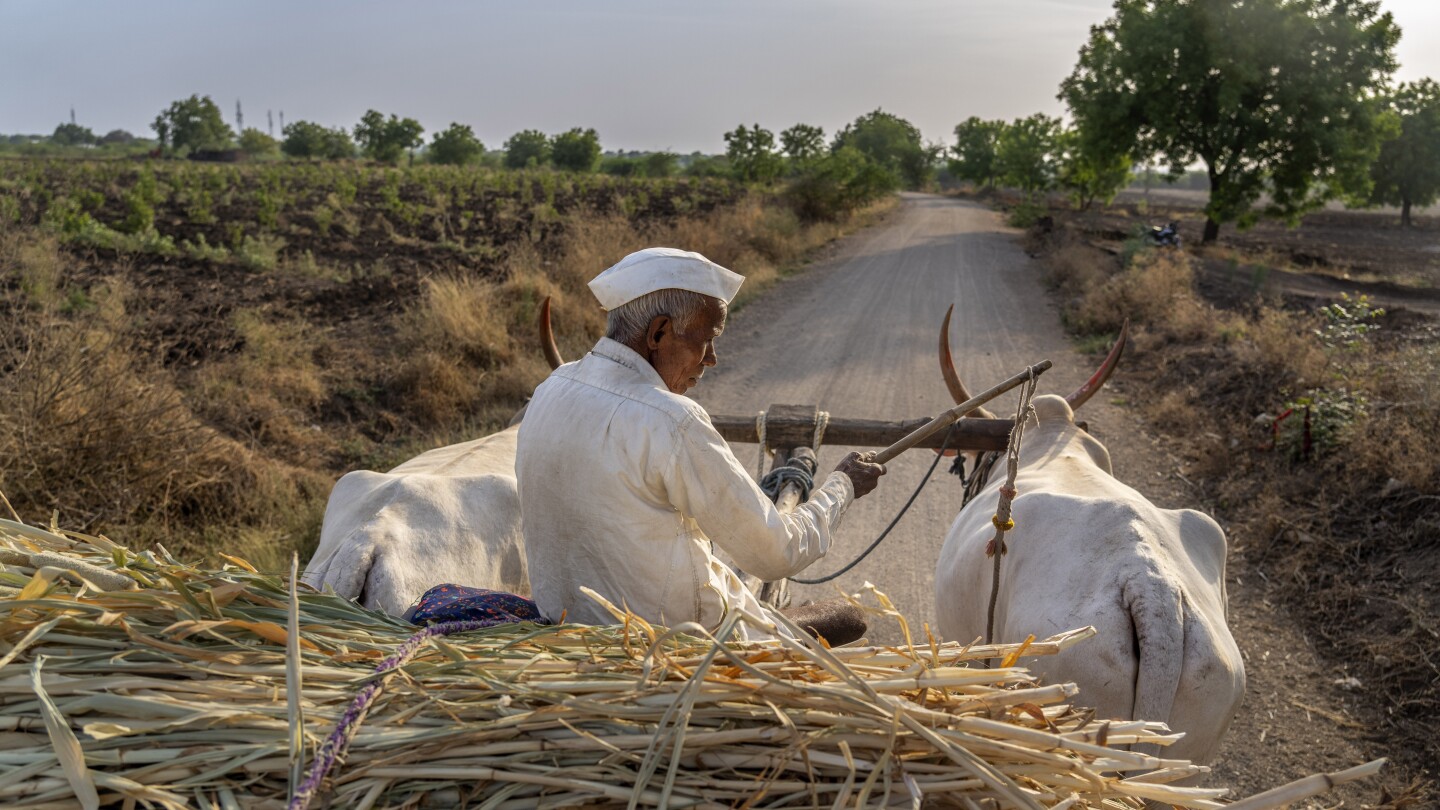On a stifling hot day this May, farm worker Shobha Londhe is reminded of the desperate conditions that led her husband to take his own life. It’s the hottest and driest summer in years, she said, and for farm workers that often means little to no income, rising debts and intolerable heat.
Londhe, a resident of Talegaon village in western India, knows well the toll these climate change-induced droughts can take on farmers. Three years ago, she said the family’s financial situation was untenable as crops failed from too much heat and not enough water. Her husband Tatya went out to the fields one October day, and never returned.
“He was struggling because we were always in debt,” said Londhe, a framed picture of her husband beside her. She partly blames his death on the increasingly hot and dry weather in their home region of Marathwada in Maharashtra state. “We are completely dependent on rainwater for agriculture,” she said.
Londhe is one of India’s 120 million farmers who share fast-shrinking water resources as groundwater is pumped out faster than rain can replenish it. Drought-prone areas like Marathwada are at the sharp end of the shortage, making life unbearable for many. As the country continues to vote in its marathon six-week election, farmers are looking for longer-term solutions to the water problem, like building canal networks from distant rivers. But politicians have promised and done little to secure water for them, with activists saying that big businesses and large farms are being prioritized instead.



This is the best summary I could come up with:
BEED, India (AP) — On a stifling hot day this May, farm worker Shobha Londhe is reminded of the desperate conditions that led her husband to take his own life.
In western Maharashtra state, successive droughts caused in part by human-caused climate change have compounded the problems for farmers, forcing them to take out loans to buy crops.
Debt, crop failure, alcohol addiction and lack of jobs are some reasons for the high rate of suicides among farmers, says local politician and head of Dhondrai village, Shital Sakhare.
Manisha Tokle, an activist based in Beed, said most politicians in the region favor those who already have economic power, like the upper caste, large land-holding farmers, sugarcane factory owners and pesticide manufacturers.
The average wage for farm workers has remained at about $3 to $4 per day for at least 15 years according to Indian government data, despite repeated calls by farmers groups from across the country to increase it on par with rising costs.
But she warned that while politicians can do more to help on finding alternative water sources, promoting less water-intensive crops or giving financial support to farmers, “they can’t reverse the effect of climate change.”
The original article contains 979 words, the summary contains 198 words. Saved 80%. I’m a bot and I’m open source!